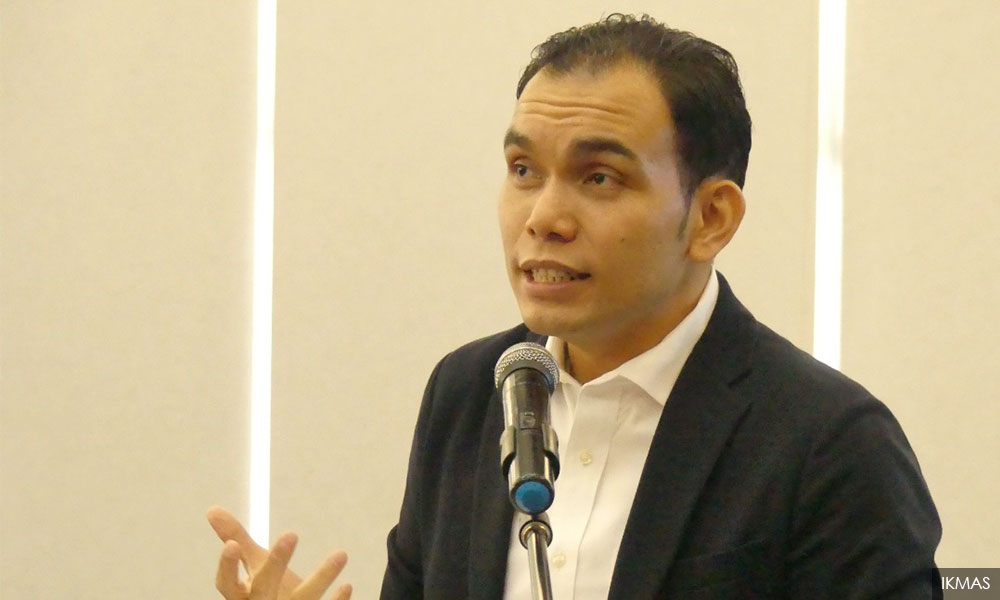"In fact, they were all justifying the use of the Sedition Act and now we pay the same price again.”
- Former Malaysian Bar president K Ragunath.
When I see all these activists chanting “Free Fahmi” and “Political satire is not a crime”, all I can do is shrug. Well, yeah kids, it is a crime here in Malaysia and you know that when Pakatan Harapan had a chance to ditch such laws, they chose not to.
It is convenient to blame the Perikatan Nasional (PN) government for problems this country faces, but when Harapan promised solutions to these problems, they never delivered. As always, blame-shifting and deflection will define how Harapan handles issues like these.
It is pointless laying the blame on PN because, ultimately, it was Harapan’s responsibility to repeal these laws because, for the Malay uber alles government, sedition laws were always tools in their box of dirty tricks.
Not only did Harapan throw free speech advocates under the bus, never mind the citizens of Malaysia, who think that such issues are important, they were toying with the idea of ditching the sedition law, but replacing it with another. One form of repression for another. Is this the best Harapan has to offer?
When Ronnie Liu was hauled up by the then Harapan state under sedition laws for posting pictures of Thais protesting against the Thai monarchy, you have to wonder, what kind of government was Harapan.
But wait, under Harapan, a woman’s march was investigated under sedition laws, then there was the preacher Wan Ji Wan Hussin and of course who could forget the persecution of Fadiah Nadwa Fikri.

Keep in mind that these are the stories that made the news cycles. Meanwhile, the Harapan state was also considering laws that would make news portals responsible for readers comments, which was taking the stifling freedom of speech to a whole new level.
You better believe that these issues are important to me because, in countless pieces, I have been warning that these laws that Harapan chooses to waffle on will come back and bite them on their behinds, but more importantly, the average rakyat who does not have the luxury of being politically connected, or have a social media presence, will feel the full brunt of these laws when speaking up on issues that affect every Malaysian.
These laws are enacted to muzzle the public but, more importantly, are vital tools in the “fear box” to remind the public that whatever they say or do against the state is always under scrutiny.
You can never tell what you say or do is seditious or illegal because these laws are there for the convenience of the ruling elite, rather than any kind of traditional normative values or reasoning of a functional democracy.
So, of course, when Harapan was in power, there was all this waffling because suddenly they realised that having these instruments makes it easier to restrict dissent. This is why the world's smallest violin was playing – at least in my mind – when Amanah vice-president Mujahid Yusof Rawa questioned why he was being investigated under the Sedition Act for questioning the legitimacy of the current prime minister.
Lawyer Syahredzan Johan, who is also the political secretary to Lim Kit Siang, said in 2015: "We are saying that we have certain principles that we adhere to as a democracy. Freedom of speech and expression is part of our DNA, so we hold on to these values. If we don't say something because we are afraid they will come after us, then we are saying that these values are not that important to us. Do we want to be the kind of society that allows the authorities to do as they please because we fear getting into trouble?”
To be fair to Syahredzan, he was always on the side that wanted these laws abolished and he was sceptical of tinkering with them.

However, the reality is these laws were used on the opposition and activists for years and those same people who felt the oppression of these laws chose instead to commit to some sort of political pacts with fascists instead of their commitment to repealing such laws.
When P Waytha Moorthy, then minister in the Prime Minister's Department, said this in 2019 – "However, I do agree that there are elements within the Sedition Act which should remain, which I believe may be applied in the Penal Code and so on." – you have to wonder exactly what other pernicious laws that Harapan political operatives thought beneficial to them when they were in charge.
This would make their rejection of these laws hypocritical because when in power they suddenly see the benefit of such instruments, just not when the other party uses these laws.
Of course in typical wonky Harapan thinking, RSN Rayer (Harapan-Jelutong) said this: "Is there a proposal, before repealing the Sedition Act, to enact a new law that keeps the aspiration of the Sedition Act while ensuring that it cannot be abused?" This is absurd because the aspiration of such laws is, as Syahredzan rightly pointed out in 2015, is to "imprison the minds of citizens" and as such, abuse is the very definition of such laws.
If you really want to see the kind of legalese that the Harapan state was engaging in, you should read the spat between lawyers for Wan Ji and the Attorney-General's Chambers. In the same article, then AG Tommy Thomas said: "Upon assuming office on June 2018, I decided, with regard to alternative laws in our statute books (including provisions in the Penal Code), to only turn to Sedition Act as a measure of last resort.”
I have no doubt that problems like these will continue to boil over, and tragically it will be lost on many that Harapan had the solutions but failed to implement them. - Mkini
S THAYAPARAN is Commander (Rtd) of the Royal Malaysian Navy. Fīat jūstitia ruat cælum - "Let justice be done though the heavens fall."
The views expressed here are those of the author/contributor and do not necessarily represent the views of MMKtT.



No comments:
Post a Comment
Note: Only a member of this blog may post a comment.